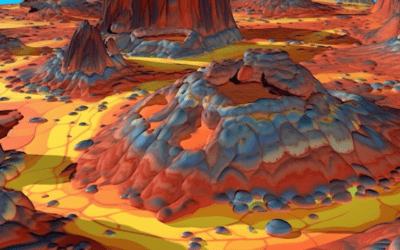Do Magnets Work in Space? Unraveling the Mystery of Magnetism Beyond Earth
The question of whether magnets work in space has intrigued scientists and space explorers for decades. Let’s dive into the fascinating world of magnetism beyond Earth and explore this puzzling phenomenon.
What is Magnetism?
Magnetism is the force that attracts or repels objects. You may have played with magnets and noticed how they can stick together or push apart depending on their orientation. This force is caused by the alignment of particles called electrons within the material.
In everyday life, magnets are commonly used for various purposes, such as holding notes on a refrigerator or transmitting data in hard drives. But what about magnets in the vast expanse of space?
Magnets in Space
In space, magnets indeed work, but their behavior can be quite different from what we are accustomed to on Earth. The primary reason for this difference lies in the absence of certain factors present on our planet.
Magnetic Fields
On Earth, we are protected by a shield called the magnetosphere, which is generated by our planet’s core and its rotation. This shield deflects the solar wind, a stream of charged particles from the Sun. In space, however, there is no magnetosphere to shield us.
Flip-Flopping Magnets
In the absence of a magnetosphere, the behavior of magnets can become rather strange. Without any outside interference, magnets in space can flip their polarities, meaning their north and south poles can reverse. This phenomenon, known as magnetic reconnection, can occur when strong magnetic fields interact and realign.
Magnetization in Space
While the magnetosphere is absent in space, magnetic fields still exist. Stars, such as our Sun, have their own magnetic fields that play a crucial role in various astronomical phenomena. Planets like Jupiter and Saturn also possess strong magnetic fields.
Within the International Space Station (ISS), astronauts have performed experiments with magnets in microgravity conditions. These experiments have shown that magnets can attract or repel each other, just as they do on Earth.
The Space Environment’s Influence
Although magnets can work in space, the space environment can have an impact on their behavior. Extreme temperatures, vacuum conditions, and radiation can affect the performance of magnetic materials. Scientists must develop magnets specifically designed for use in space to counter these challenges.
Applications of Magnets in Space
Understanding magnetism in space has practical applications in space exploration. Magnets are used in satellite systems to control the orientation of spacecraft or to generate electricity. They also play a vital role in scientific missions, such as detecting and measuring magnetic fields around celestial bodies.
In Conclusion
In summary, magnets do work in space, but their behavior can differ from what we typically observe on Earth. The absence of a magnetosphere and the unique environmental conditions in space lead to intriguing phenomena such as magnetic reconnection. Exploring magnetism beyond Earth is not only fascinating, but it also has practical implications for space exploration.












